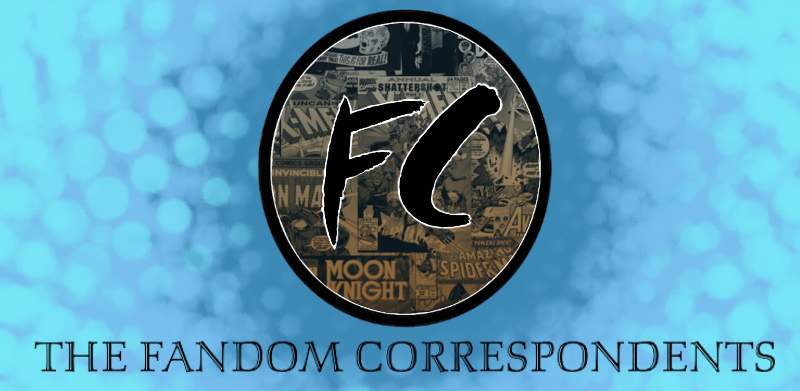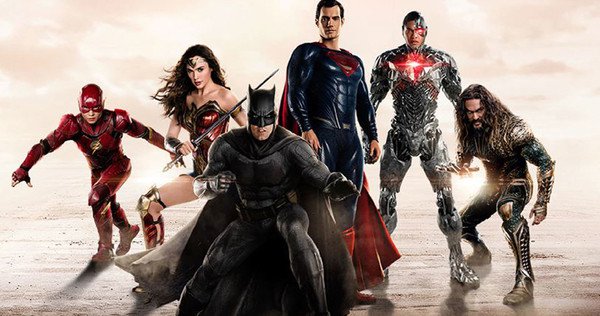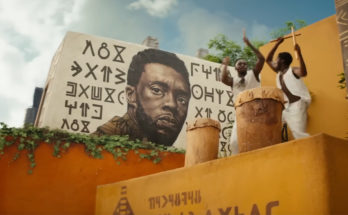I’ll be real: as someone who has mercilessly lambasted Man of Steel and Batman v. Superman since their respective releases, I went into Justice League with more than a little trepidation. I was unsure of some of its castings, Snyder’s ability to remain faithful to our beloved characters, and the post-production reshoots and mustache-CGI. All that to say, I really enjoyed Justice League. It definitely has its problems and has a long way to go before touching Marvel’s top films like Winter Soldier and Age of Ultron, but it was good fun with some solid characterizations. To give you an idea of what I think are positives and negatives for WB to focus on as it continues along with its DC franchise, here’s a nice 3-and-3 for you to peruse while you sip your afternoon whiskey.
DISCLAIMER: There will be spoilers; it is unavoidable to talk about this movie in the way that I want to without discussing major plot points and characters. Admin WiseSage is also producing a spoiler-free review that you can check out if you have not yet seen the movie, and I encourage you to give it a read.
DOUBLE DISCLAIMER: Before everyone labels me a negative Nancy or a Judgy Janet or a pessimistic podiatrist, I did not just like three things about Justice League. I liked a lot of stuff. These are just the main three things that I thought they nailed, and three things that were especially worrying to me. Now let’s get started.
What I Loved: Superman
Man of Steel’s portrayal of one of comic book history’s icons was abysmal, and Dawn of Justice’s treatment was not much better. Overall, Snyder’s misuse of the character has bordered on irreverent, giving Superman fewer than 100 lines before killing him in last year’s Batman v. Superman. Needless to say, I was hesitant going into Justice League, anticipating the Big Guy’s return and wondering just what direction they were going to take him. However, I ended up being delighted by his return.
Justice League’s Superman returns with an initial confrontation with the newly-formed Justice League; having lost his memory and being confused and enraged with his resurrection, Superman puts a beatdown on his welcoming party in a fit of rage. This sequence does so not only much for his character but also for the DC Universe as a whole. First, it displays Superman’s raw power. During the course of his two previous movies, we have seen Superman slapped around by Zod, Zod’s minions, Doomsday, and Batman. The dude lost more fights than he won, and as the heavy hitter of the Justice League it was disconcerting for many fans to see him dominated like that. This sequence lets him show his power as an unstoppable force that leaves even the Justice League powerless to stop him. Second, this resurrection sequence sets up the timelines for future character development for the other League members. The Flash is clearly not at his peak power, judging by his relative slowness allowing Superman to see him using the Speed Force (fantastic scene, by the way). Similarly, Cyborg is definitely not in control of his powers, and Aquaman’s brashness displays that he is far from emotionally mature enough to lead Atlantis as king of the seas. By using this scene to show their shortcomings and character flaws, WB has the opportunity to handcraft these characters’ future solo movies around what they need to improve upon. Flash isn’t that fast yet? I wonder what villain might give him the incentive/insight to increase his speed. Cyborg needs to develop control over his tech? Maybe a personal struggle with a GRID entity is what he needs overcome. Aquaman lacks poise? I’m sure there are some nemeses and family members willing to force him to grow into his majesty. With one sequence, Justice League makes reparations for such a previously weak Superman and established a simple guide for future League character development. Talk about efficiency.
In Justice League, we see Superman smile. We see him encourage League members, crack jokes, and rejoice in victory. We see him confident in doing the right thing. We see him being Superman, and it was one of the most refreshing things I’ve ever seen. His line “I’m a big fan of justice,” made me wants to stand up and cheer in the movie theater, and being that excited about Superman just felt right.
What I Loved: Wonder Woman
After single-handedly saving WB’s DC universe with her previous solo movie, Wonder Woman again shows up as a major strength in Justice League. Gal Gadot’s performance was magnificent, balancing emotional range and character consistency while remaining entertaining. While each member of the League struggles to figure out why they’re fighting and who they are meant to be, Diana provides a sense of stability and confidence that pervades the movie and gives it the feeling of a Justice League event. I love this character because her motives are so simple yet so inspiring. “People are going to die? All right, let’s go, I will talk to whoever I need to talk to and do whatever I need to do to make sure people do not die.” In a world and a medium filled with moral relativity, grey areas, and corruption, Gadot’s performance is a breath of fresh air and reminds us all of what heroes are supposed to do: the right thing. I am beyond eager to see Wonder Woman 2 and learn what else Diana has to teach us.
What I Loved: The Structure
Justice League doesn’t really have any subplots. No B-Plot, no real romantic sidestory developing, no time-traveling escapades to give us a break from the action. Everything that happens in Justice League is for the purpose of defeating Steppenwolf. Why does Batman recruit everyone? To defeat Steppenwolf. Why does Victor’s father get kidnapped? Motivation to defeat Steppenwolf. Why does the League resurrect Superman? So that they can defeat Steppenwolf. All the Mother Box stuff going on? A way to prevent Steppenwolf from getting stronger and, thus, defeat him. While some people may not like this structure and call it simple, I loved it. Movies today are filled with subplots, most of them not interesting at all. Nobody watched Pacific Rim to see budding romance; they watched it to see mechs fight giants monsters. There was just enough Lois Lance-Superman relationship to establish his mental state and his motivation to join the League, and any other deviations from the central plot served to affirm the stakes or display motivation. It was simple, but simple is not always a bad thing, and it was definitely a good change from the garbage pile of background action in Batman v. Superman.
What I Disliked: The Flash
Lord forgive me, I did not like The Flash in this movie. It is one thing to make a character quirky and comedic; it is a whole other thing to impose autism-type social behaviors for comedic relief. As a mental health professional, I get tired of psychiatric caricatures being passed as characters in Hollywood. And personally, hanging Iron Fist out to dry over misuse of mental health depiction while letting WB-DC get away with it would be hypocritical. So let’s talk about this.
The fact that Barry Allen came off as having extreme Asperger’s Syndrome is not the reason I didn’t like the character. I didn’t like the character because the writing reduced him to being just that: a character with Asperger’s. It was not an aspect of his character that coexisted with his heroism, personality, or behavior; it was a caricature that made autism the butt end of most of the movie’s jokes. Oh, he doesn’t have any friends; I guess that’s kind of a funny reason for joining the League. Oh, he’s nervous and can’t talk to Diana; that’s kind of cliché but whatever. Oh wow, they aren’t letting the social awkwardness thing go, are they? This is getting uncomfortable.
The last thing I want is to come off like an extremist social justice warrior who gets offended by everything. And I don’t think WB’s intention was to alienate and ridicule people on the autism spectrum. But it was lazy writing, shallow characterization, and an unfortunate missed opportunity to really do something special with the character. I like the idea of Barry being “different” due to being cognitively faster than everyone, and giving him an autism-like personality offers an interesting take on the character and could empower an entire population that need more heroes and role models they can relate to. The best way to totally fail at that? Throw him in there for comedic effect. Having Barry Allen’s biggest takeaway being “Fast guy who’s really socially awkward” is not doing anyone any favors.
What I Disliked: Steppenwolf
In terms of villains, Steppenwolf was about the quality of the average MCU villain: he existed to move the plot, and he was evil because he was supposed to be. We got little sense for his motivation, and his connection to Darkseid was mentioned in passing, but he served his purpose. Steppenwolf was not really bad; it was just disappointing to see the Justice League in live action for the first time have to fight such a lackluster, unremarkable villain. The writing made his power inconsistent: one minute he was storming Themyscira and laying waste to Amazons, the next minute he is struggling to fight Aquaman one-on-one. Steppenwolf serves his purpose, but for such a monumental movie like Justice League you kind of want a villain who is more than just there.
What I Disliked: Not Enough Batman Being Batman
Again, Ben Affleck does a great job on Batman/Bruce Wayne with what he is given in the script. That being said, his Batman never really felt like Batman to me. To their credit, they did show him doing more investigative work while recruiting the rest of the League, and his opening scene with the burglar and the parademon was a great sequence. However, through much of the movie, Batman felt like an afterthought. Sure, he had massive amounts of screen time, but much of it was overshadowed by a Flash joke, a cool Wonder Woman move, or some Cyborg exposition. Throughout the movie I was waiting for a big, comic book-esque Batman moment, something similar to Superman’s justice line or Diana saving the people at the bank. But even when the bat signal summoned him to Gotham PD, Batman arrived with other characters in tow. It felt like WB was really trying to draw attention away from Batman, and if the rumors about Affleck’s exit from the franchise are true, then you could really feel the character’s departure throughout the movie. Between his blunt comments to Wonder Woman, his insensitive thoughts about Superman’s resurrection (“He’ll get over it”), and his virtual disappearance from the penultimate fight, Batman didn’t really feel like Batman. In fact, one of the most beloved characters of all time didn’t even feel likable or, really, noticeable.


